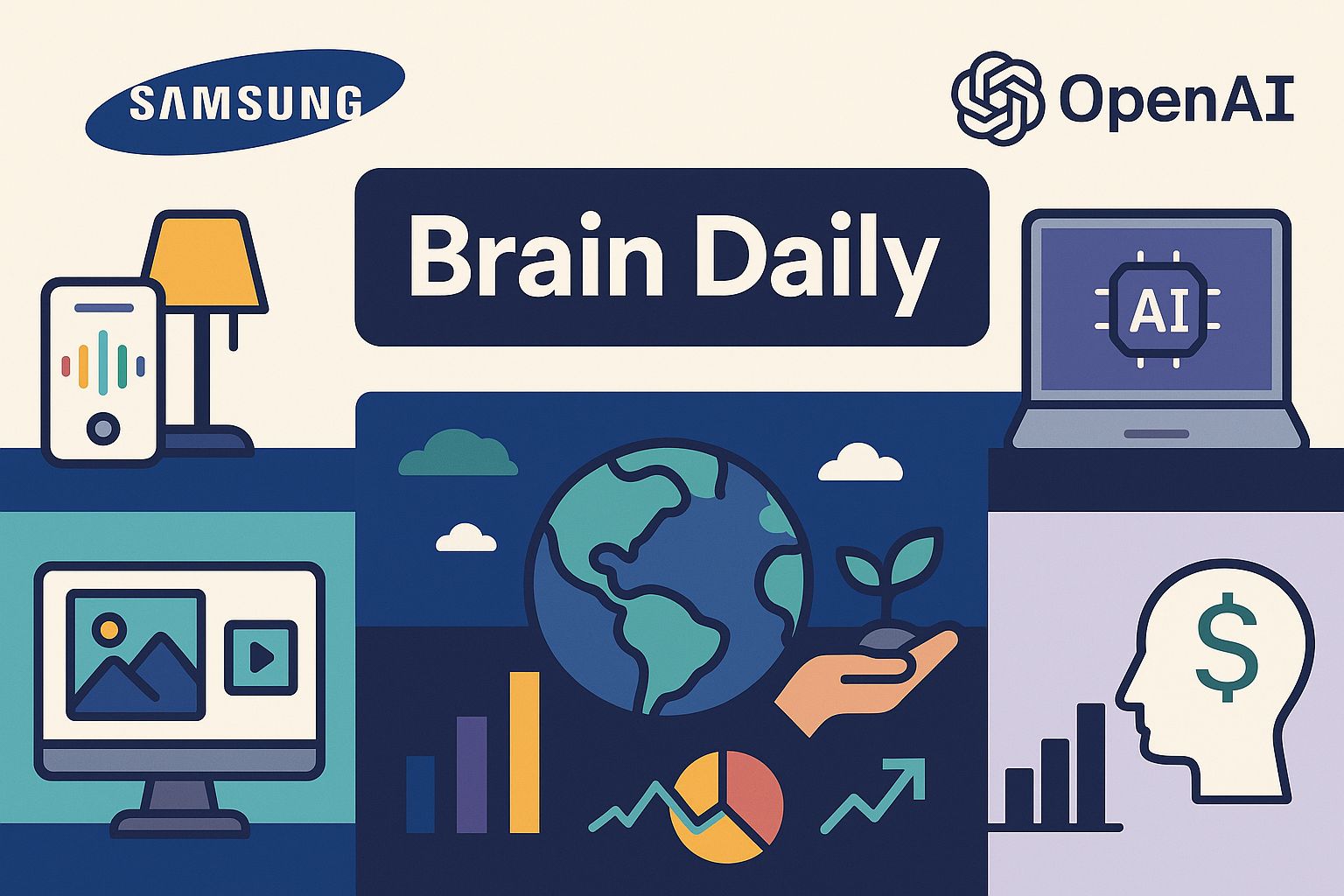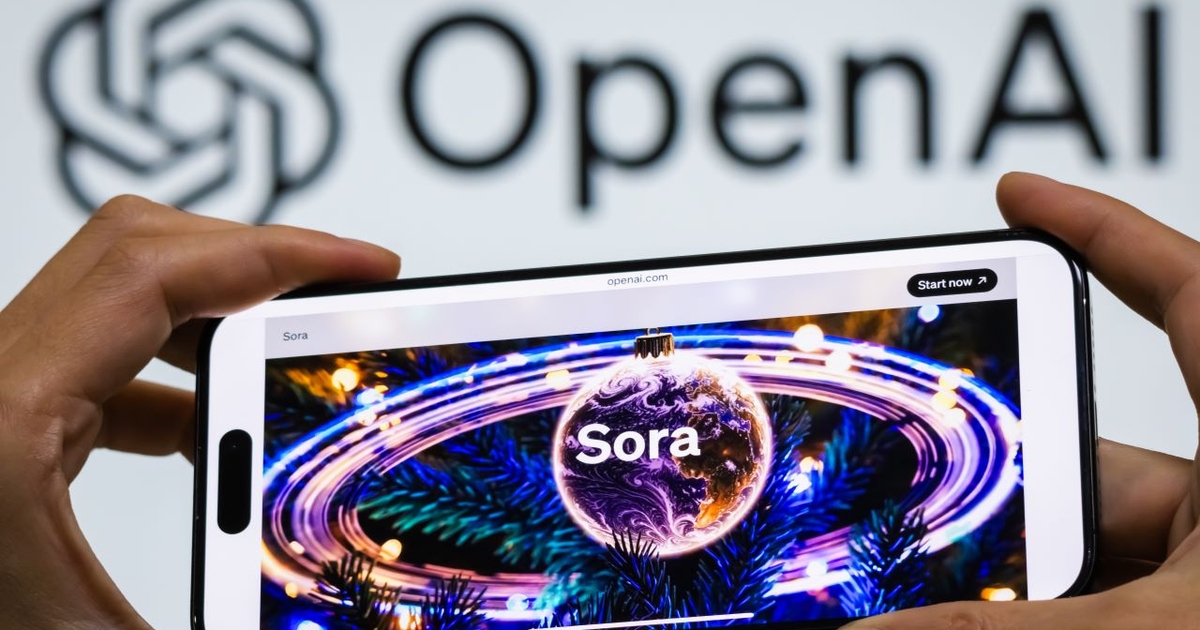
Stories on Samsung + OpenAI’s AI pact, Google’s smart-home Gemini, Replit’s $150M surge, OpenAI’s Sora 2, MIT’s climate push, cancer data breakthrough, and AI reinventing VC.
The partnership combines Samsung’s semiconductor expertise with OpenAI’s large-scale model development for advancing global AI capabilities.
Joint initiatives will focus on building efficient, scalable infrastructure to support next-generation AI applications across multiple industries.
The collaboration highlights growing competition in AI infrastructure, with companies racing to secure hardware and compute resources.
Both companies aim to accelerate adoption of AI technologies by addressing bottlenecks in compute power and model deployment.
The new lineup includes AI-powered smart displays, speakers, and thermostats designed for seamless home integration.
Gemini for Home allows users to control appliances, manage schedules, and access real-time information with natural voice interaction.
The launch emphasizes Google’s strategy to position Gemini as a unifying platform for connected homes.
Early availability signals Google’s push to compete with Amazon Alexa and Apple HomeKit in the smart home market.
🤖 We scan thousands of AI stories. You get the Top 7.
Replit pivoted from professional developers to hobbyists and students, driving rapid growth and hitting $150M annual recurring revenue.
The company shifted focus toward accessibility, emphasizing simplicity over advanced features for professional developers.
Replit’s user base surged as the platform empowered students, educators, and indie developers to create and share projects easily.
The pivot demonstrates how expanding beyond professionals can unlock massive growth in developer-focused platforms.
With community-driven tools and AI coding assistants, Replit has become a gateway for the next generation of programmers.
Sora 2 offers improved text-to-video capabilities, delivering higher quality and more efficient generative outputs.
The new social media app integrates AI tools, allowing users to create, share, and remix generative content.
OpenAI’s strategy signals a shift toward consumer-facing applications that blend entertainment and creativity with AI.
The launch highlights OpenAI’s move to compete with TikTok-style platforms while expanding AI accessibility to mainstream users.
The report calls for more energy-efficient data centers and innovations in AI model training methods.
Researchers stress collaboration between academia, industry, and policymakers to align AI growth with climate goals.
Proposed approaches include using renewable energy sources and optimizing model architectures for lower power consumption.
The findings underscore the urgent need to balance AI progress with global environmental sustainability commitments.
💡 Brain Daily: The AI briefing trusted by Silicon Valley’s top builders and leaders.
Find out why 100K+ engineers read The Code twice a week
Staying behind on tech trends can be a career killer.
But let’s face it, no one has hours to spare every week trying to stay updated.
That’s why over 100,000 engineers at companies like Google, Meta, and Apple read The Code twice a week.
Here’s why it works:
No fluff, just signal – Learn the most important tech news delivered in just two short emails.
Supercharge your skills – Get access to top research papers and resources that give you an edge in the industry.
See the future first – Discover what’s next before it hits the mainstream, so you can lead, not follow.
New techniques allow institutions to collaborate without exposing sensitive patient records, overcoming long-standing legal and ethical barriers.
The approach enables larger, more diverse datasets that improve AI models’ accuracy in diagnosing and predicting cancer outcomes.
Researchers highlight federated learning and synthetic data as critical tools for secure cross-institutional collaboration.
This advancement paves the way for faster clinical discoveries while protecting patient privacy and regulatory compliance.
Venture capital firms increasingly rely on AI tools to analyze startups, assess risks, and identify investment opportunities.
Investors are adopting AI-driven due diligence platforms that evaluate market trends, financials, and team performance more efficiently.
The shift enables VCs to screen thousands of startups quickly, reshaping how deals are sourced and closed.
AI helps reduce biases in decision-making, though experts warn of new risks in over-reliance on algorithms.
The trend reflects broader industry efforts to integrate AI into financial services and investment management.
If you find this newsletter valuable, please forward it to a friend or colleague who may also benefit from staying up to date with the latest in AI.
If you have any suggestions, questions, or ideas, feel free to reply to this email.
Disclosure: Brain Daily features high-quality sponsors and may earn commission from qualifying purchases.








